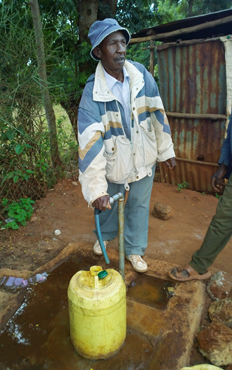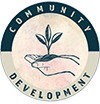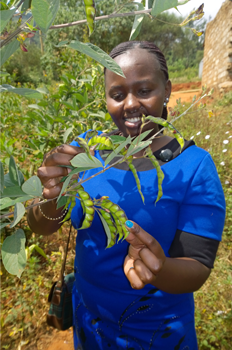ABM Archive Website
THIS WEBSITE CONTAINS ARCHIVE MATERIALS FOR HISTORICAL REFERENCE ONLY
For up-to-date information, including our latest appeals, news, and resources, please visit our current website.
Kenya:Sustainable Livelihoods Program
 |
|
Among other solutions, the Sustainable |
 |
This is part of the Community Development Program: Learn more about ABM’s Programs here
In 2009 when ABM first engaged with a development arm of the Anglican Church of Kenya, much of the area covered by Machakos and Makueni counties was suffering the effects of infrequent and increasingly unpredictable rains.
Since that time, with support from ABM and other partners, the church has had a huge impact on reducing hunger and increasing the incomes of the local farming communities, many of whom are woman-headed households.
The key problem in the two counties was the fact that the main sources of water for both human and agricultural use were rivers which only ran once or twice a year when the rains came. The rivers would quickly fill with water, and just as quickly rush out to empty into the Indian Ocean, leaving the farmers with little water for their use for the rest of the year.
The solutions have been multi-pronged. One was to teach farmers how to conserve water – by erecting numerous sand and earth dams, hillside contouring, massive tree planting and use of drip irrigation and zai pits to store water in the fields. Another was to persuade the farmers, through the persistent use of demonstration plots and seminars, to plant crops that were more drought-resistant or had a longer storage life. This way farmers could make better use of market fluctuations, and diversify their farming activities.
Now, in the targeted communities in both counties, 5,000 people have benefitted immeasurably from the church’s support.
 |
| Jennifer Mutua, the ADSE Projects Officer. © Julianne Stewart/ABM, 2015 |
Through this program women are establishing their own sources of income and providing stability for their families.
Mary Maundu lives in Machakos County and has a family of five. Mary benefitted from receiving drip irrigation training on efficient water use. After the training she struggled to get funds to excavate the farm pond where she harvests rain water to irrigate the farm.
But she managed to make the pond and purchase a drip kit and the pond liner in October 2013, after getting a loan from her Village Savings and Loans group.
It successfully harvested water and since then she has been using the pond ever since. Mary has turned her focus to business.
Currently she is doing small scale farming at her drip farm. She has been growing kale, tomatoes and onions which she has been selling to the community on a daily basis at the farm gate.
The drip technology is allowing her to sell produce regularly which she values because the rain fed farming method failed her for many years.
On a daily basis she makes sales ranging between $4-5 which in turn gives her about $130 each month which she saves in her bank account.
She told ABM’s partner in Kenya, Anglican Development Services-Eastern (ADSE), that her family loves the technology and has promised to expand the farm with time to serve the increasing demand for her products so they can receive even more income.
With her improved income Mary has managed to pay school fees for her two daughters in secondary school. One of them successfully completed school last year and waits to join college. Mary is now comfortably supporting her family’s basic needs and coping with life, unlike other community members who are struggling with earning an income.
Your support of this project will see more people like Mary achieve success in their local communities.
KE001IC needs $11,160 in 2016 (tax-deductible)
| This project receives partial funding from the Australian Government. |
HOW TO DONATE
You can make an online donation to this project by selecting Kenya: Sustainable Livelihoods Program from the full project list.
Alternatively, for donations by cheque/money order (made out to the Anglican Board of Mission – Australia), telephone or email, view contact details here. Please don’t forget to include the project name and/or code with your payment details.
Gifts to ABM will be applied to the support of project(s) selected. In the unlikely event of the project being oversubscribed or not proceeding to completion, donations will be applied to a similar project to the one(s) selected.
PROJECT UPDATES
September 2016 – What is a CBO? Some of you will be familiar with this acronym, but for others it will be new. CBOs, or Community-based Organisations, are what many of us belong to in our own communities. These might be service clubs, or even church groups that do community work. In the developing world, much of the work of development is done by CBOs. Read more.
August 2016 – ABM Programs Director, Dr Julianne Stewart, recently visited the Makakya region of Kenya on a monitoring visit. She met many beneficiaries of the Sustainable Livelihood Program and the Village Savings and Loans (VSL) Program, and heard their stories. Read more.
Of One Heart and Mind
This 10 minute video describes how the food security and integrated community development work being undertaken by the Anglican Church in Eastern Kenya is transforming lives in rural communities. The video links the Millennium Development Goals to real activities happening at the community level.
Newsletter from Anglican Development Services Kenya
Read about climate change adaptation in ADS Kenya’s August 2015 Newsletter
< Back


